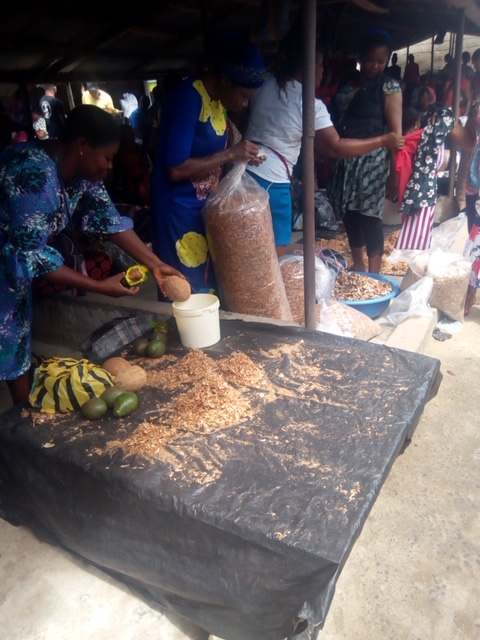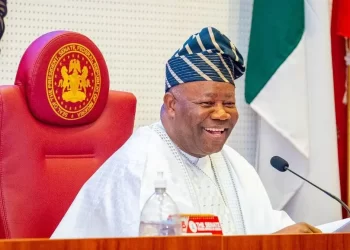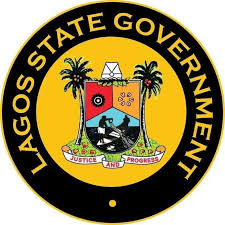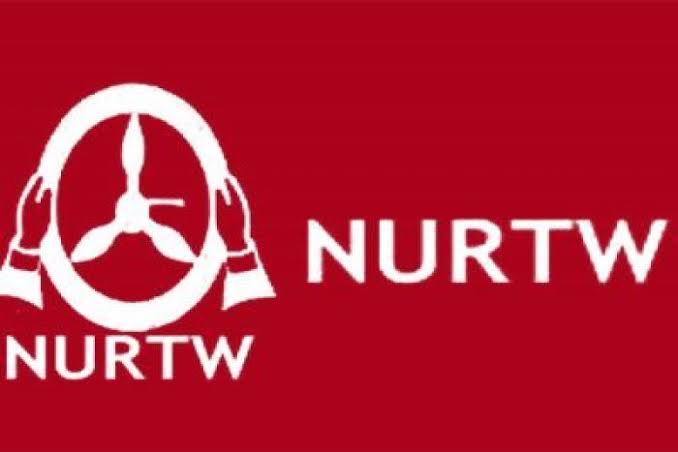It was on a sunny afternoon on Sunday, May 23, 2021, at the Oron Beach and Seafood Market, Oron Local Government Area of Akwa Ibom State.
Thousands of traders were bargaining, buying and selling in the very congested market space.
Wheelbarrow pushers, motorcyclists, bus drivers and loaders were competing to collect bags of fishes and crayfish.
The air within the market was hot, polluted and choky; a nightmare of some sort for anyone who is asthmatic.
The market was filled to the limits and stretched all the way to the bank of the river.
For once, any visitor would have wondered if Akwa Ibom is indeed a Christian-dominated state.
The crowd of buyers, sellers and ancillary service providers found at the market made it look like people no longer go to their churches on Sunday.
Not far from the market, there were churches in full session and worshippers were singing, clapping and dancing.
There was an ongoing rehabilitation of the major road leading to the beach handled by the Akwa Ibom State Government.
Findings showed that the road was constructed by the colonial authorities in 1912 as a Trunk-A road to provide access to the mainland where dozens of ships and boats came in from Calabar and Cameroon through the Cross River and the adjoining Atlantic Ocean.
With the ongoing road rehabilitation, it was impossible for vehicles to access the beach directly. So, drivers who must get to the market took alternative routes.
The alternative routes were, however, constricted by doubled-parked cars in every conceivable space, thereby making the approach to market chaotic and residential compounds inaccessible to their owners.
In their thousands, buyers manoeuver their way down to the market on foot; pushing through thick human and vehicular traffic.
Oron Beach and Seafood Market is said to be one of the largest fishing beaches in the country.
It extends from Oron to Atabong, Enwang, Ebuhu, Asinufot and Ibaka beaches – all landing terminals for fishing.
Insert picture of Bags of seafood being loaded in vehicles here
Those who know say that the Oron Seafood Market receives the largest number of ferries and hosts the most seafood traders in South-south Nigeria.
Many indigenous traders said the prices of seafood especially crayfish and fish were unnecessarily hiked because of the influence of the dominant large-scale buyers.
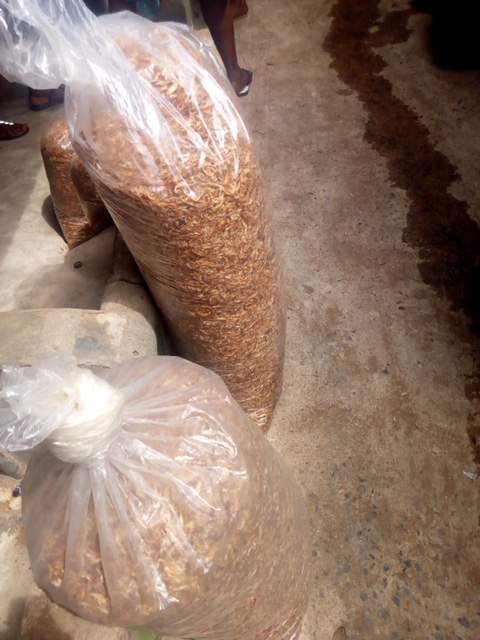
And these consist mainly of Igbo traders, who are said to push prices of seafood against the reach of small-scale buyers.
Local crayfish sellers accuse the Igbos of pushing for high prices adding that the fishermen prefer selling to the highest bidders so they can get high turnover and profit.
“This is business. The prices of crayfish and fish are not determined by us but by the Igbos. As it is, a bag of crayfish now goes for N75, 000 which is almost twice the price as of two years ago,” said a seller who gave her name as Ikwo.
“The price peg favours the Igbos to the detriment of our people because our people who are small-scale buyers cannot compete with them in purchasing power.
“Sometimes, our people cannot buy because we sell almost everything to Igbo traders. Without a doubt, fish and crayfish are in surplus in Aba than in Akwa Ibom State,” she told our correspondent.
The indigenous sellers and buyers who spoke to our correspondent said they were unable to match the purchasing power of the visiting Igbo traders and blamed the situation for the high cost of fish and crayfish in the state.
However, a youth leader from Idua Assang, Godwin Effiong insisted that while indigenes were in charge, prices were controlled by market forces.
He said, “Nobody has hijacked the market as speculated. The market is managed and controlled by indigenes of Oro nation and not only by the Idua Assang community.
“But the challenge is that he who has the resources controls the market-force. Therefore, the picture painted that Igbos have hijacked the market is because they have the money.”
A trader and an indigene of Oron, Eyo Antigha, told our correspondent that local traders lost control of the beach when the market authority agreed to change the market day from Mondays to Sundays.
Mr. Antigha said the decision to change the market day was initiated by Igbo traders and swallowed the hook, the line and sinker by the authority.
“The market is not supposed to be on Sundays. It originally was selling on Mondays,” he explained.
“But because the Igbos said they sell their own wares on Mondays, the market managers unilaterally changed the market day to Sundays for them.”
Insert picture of bags of crayfish here
Lamentation of indigenous traders
Many indigenous traders from Akwa Ibom state said low capital occasioned by lack of access to credit facilities has forced many of them out of business thereby creating an opening for traders from other states to take over the market.
They lamented that neither the federal or state government has provided assistance to them over a long period of time.
“Formerly, the federal government used to give fishing nets and other fishing tools, but for a long time, no such thing has happened,” said a trader who gave his name as Okon
“Right now, nobody is paddling a canoe again. Everybody is using an outboard engine. A 25-Horsepower outboard engine costs about N750, 000.
“Now, look at this environment, who do you think can raise that amount just to buy the engine, not to talk of the boat itself and other fishing equipment in the face of recurring attacks by pirates?”
Our correspondent was told how Igbo traders buy outboard engines for indigenous fishermen who in return work for them.
It was also found out that the prices of fish and crayfish can be brought down if indigenous fishermen and others on the value-chain have access to grants and other facilities to run the business.
Menace of pirates
Incessant attacks by pirates is said to have crippled the operations of many indigenous seafood traders and forced them out of the business.
After a series of attacks where their boats were vandalised and fishing equipment seized, many have given up for fear of not only losing their investments but also their lives.
Findings showed that the few indigenous persons who are still in the fishing business are not the owners of the boats and ancillary fishing equipment in their possession.
The equipment and investible capital are provided by Igbo merchants, who also control how the catches are to be sold.
“You will be surprised that we lose between N10 million and N50 million to pirates every week,” said Godwin Effiong. https://ssl.gstatic.com/ui/v1/icons/mail/images/cleardot.gif
“If a speedboat is worth N2 million and you put about 200-horsepower outboard engine worth N2 million with other equipment which cost approximately N1 million, you would be going out to the sea with N5 million worth of equipment.
“When you are attacked by pirates, you lose all that and we record several attacks every week. We lose boats, goods and lives in the process. We lose between N10million to N50 million weekly,” said the youth leader.
Failed attempts at getting help
Leaders of Assang community said they have made several attempts to access credit facilities from the Central Bank of Nigeria (CBN), government agencies and non-government organisations to no avail.
“Nobody is supporting us. Even when CBN is giving out money for agricultural businesses and others, nobody talks about drawing their attention to us in the aquatic business in this part of the country,” an indigenous fisherman, Bassey Otu, told our correspondent.
“There were attempts by the former executive of this community to access funds to boost the purchasing power of our people.
READ ALSO: Insecurity: Like IPOB, Proscribe All Militant Groups, Ortom Tells Buhari
“They visited the Bank of Industry and the Ministry of Commerce and Industry in the state. They also met with officials of the Niger Delta Development Commission (NDDC), to secure assistance for our people but till now, there have been no positive response.”
Apart from lack of funding, the last time the Idua Assang community had power supply was in 2012.
Findings showed that after the power supply infrastructure in the area broke down in February 2012, nothing has been done to fix it and the situation has made it impossible for the people to preserve their seafood.
A cry for help
Local traders at the Oron Beach Market have appealed to Akwa Ibom State Government for financial assistance to keep them in business.
They said that access to grants and loans would boost aquatic business, break monopoly created by non-indigenes, crash prices of products and its negative impact on the state and nation’s economy.
“As soon as we have the needed funding, there will be healthy competition and our people will fully be in the business. There will be no special group controlling the prices and the product will be accessible and affordable to ready buyers,” Mr. Otu said.
“There will be no monopoly and second-place buying. Everyone will have access to the product directly from the fishermen as they land.”
The traders also called on the governments to beef up security on the sea to stem the activities of pirates which have resulted in much loss of lives and fishing equipment.
This story was supported by the JOURNALISM RETOOL HOUSE Mentorship project of The Next Edition Newspaper.
